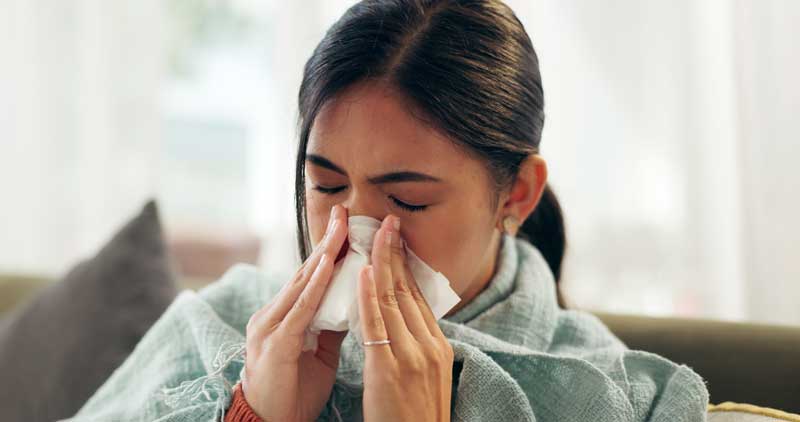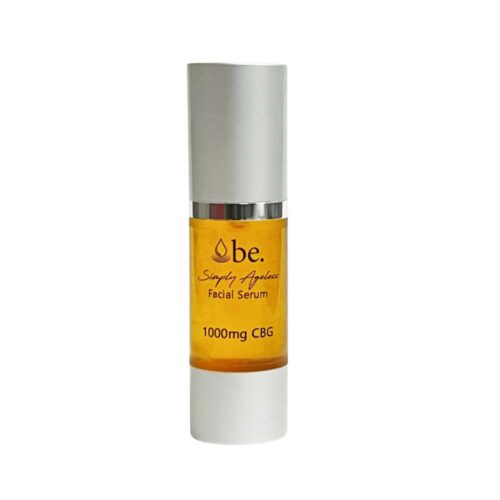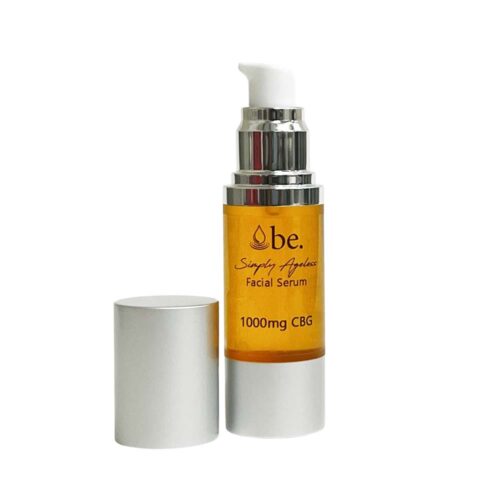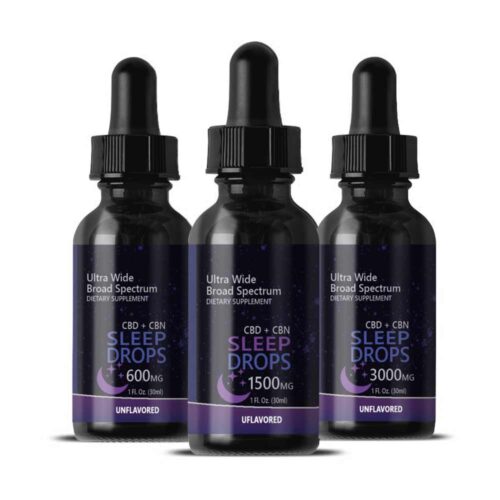CBD for Allergies: Can It Really Help?
Sneezing, itchy eyes, and congestion got you down? You're not alone. Millions of people struggle with allergies every year, searching for relief from these pesky symptoms.

CBD for Allergies: Can It Really Help?
Sneezing, itchy eyes, and congestion got you down? You're not alone. Millions of people struggle with allergies every year, searching for relief from these pesky symptoms.

Table of Contents
Topics
Related Posts
CBD Facial Serums
Reveal radiant, youthful skin with our CBD and carrot seed oil facial serum—perfect for hydrating, reducing wrinkles, and giving your skin a natural glow!
Table of Contents
Recently, CBD has entered the conversation as a potential ally in the fight against allergies. But does CBD help with allergies? Let’s take a look at CBD products and how they could potentially help if you have various types of allergies.
Can CBD Help With Allergies?
The short answer? Maybe. While research is still in its early stages, some studies suggest CBD might have potential in alleviating allergy symptoms. CBD interacts with your body’s endocannabinoid system, which plays a role in regulating immune responses — including those pesky allergic reactions.
But don’t toss out your antihistamines just yet. The evidence is promising but not conclusive. CBD isn’t a miracle cure, but it might offer some relief when used as part of a comprehensive allergy management plan.
Understanding Allergy Symptoms and Causes
Before we dive deeper into CBD, let’s break down what’s happening when you have an allergic reaction. Allergies occur when your immune system overreacts to a normally harmless substance — think pollen, pet dander, or certain foods.
Common allergy types include:
1. Seasonal allergies (hay fever)
2. Food allergies
3. Pet allergies
4. Skin allergies (contact dermatitis)
When you encounter an allergen, your body releases histamines, triggering inflammation and those all-too-familiar symptoms: sneezing, runny nose, itchy eyes, and sometimes even skin rashes.
Taking CBD for Congestion and Stuffiness
Feeling stuffed up? CBD might help. Some studies suggest CBD has anti-inflammatory properties that could reduce nasal congestion and sinus pressure. By potentially decreasing inflammation in your nasal passages, CBD might help you breathe a little easier.
You can try CBD oil drops under your tongue or even a CBD nasal spray for more targeted relief. Just remember — everyone’s body reacts differently, so start with a low dose and see how you feel.
Taking CBD for Rashes
Itchy, red, inflamed skin can be maddening. Here’s where CBD’s potential anti-inflammatory effects might really shine. Some people find relief from allergy-related skin issues by using CBD-infused creams or balms.
CBD interacts with receptors in your skin, potentially reducing inflammation and calming irritation. Plus, the moisturizing effects of many CBD topicals can be soothing for dry, itchy skin.
This includes issues like acne and general skin issues as well. CBD is a powerful option for your skin so if you encounter an irritant that causes a rash — using CBD on it might be the method you’ve been looking for.
Comparing CBD for Allergies with Other Methods
CBD isn’t going to replace all of your allergy meds overnight. But how does it stack up against traditional treatments?
Antihistamines: These block histamine production, reducing allergy symptoms. They’re proven effective, but some people experience drowsiness. CBD might offer a non-drowsy alternative for mild symptoms.
Decongestants: These shrink swollen nasal passages, providing quick relief. CBD’s effects might be more gradual but could offer longer-lasting anti-inflammatory benefits.
Topical products: Steroid creams are go-to’s for skin allergies. CBD topicals might provide similar relief without the potential side effects of long-term steroid use.
CBD for allergies isn’t about replacing these methods — it’s about finding what works best for you. Some people find a combination approach most effective.
Can You Be Allergic to CBD?
Yes, it’s possible to have a CBD allergy. While rare, some people may be allergic to cannabis plants or specific terpenes in full-spectrum CBD products. Symptoms of a CBD allergy can include:
- Skin rash or hives
- Dry, itchy skin
- Runny nose
- Watery eyes
If you experience these symptoms after using CBD, stop use immediately and consult your doctor. Always start with a small amount when trying new CBD products to check for any adverse reactions.
Final Thoughts
So, can CBD help with allergies? Early research and anecdotal evidence suggest it might offer some relief for allergy sufferers. CBD’s potential anti-inflammatory and immune-modulating properties make it an intriguing option for those looking to expand their allergy management toolkit.
Remember, CBD isn’t a replacement for medical advice or prescribed allergy treatments. Always consult with your doctor before adding CBD to your regimen, especially if you’re taking other medications.
Ready to give CBD a try for your allergies? Quality matters.
At Broad Essentials, we’re committed to providing top-notch CBD products to support your wellness journey. From oils to topicals, we’ve got you covered.
Recently, CBD has entered the conversation as a potential ally in the fight against allergies. But does CBD help with allergies? Let’s take a look at CBD products and how they could potentially help if you have various types of allergies.
Can CBD Help With Allergies?
The short answer? Maybe. While research is still in its early stages, some studies suggest CBD might have potential in alleviating allergy symptoms. CBD interacts with your body’s endocannabinoid system, which plays a role in regulating immune responses — including those pesky allergic reactions.
But don’t toss out your antihistamines just yet. The evidence is promising but not conclusive. CBD isn’t a miracle cure, but it might offer some relief when used as part of a comprehensive allergy management plan.
Understanding Allergy Symptoms and Causes
Before we dive deeper into CBD, let’s break down what’s happening when you have an allergic reaction. Allergies occur when your immune system overreacts to a normally harmless substance — think pollen, pet dander, or certain foods.
Common allergy types include:
1. Seasonal allergies (hay fever)
2. Food allergies
3. Pet allergies
4. Skin allergies (contact dermatitis)
When you encounter an allergen, your body releases histamines, triggering inflammation and those all-too-familiar symptoms: sneezing, runny nose, itchy eyes, and sometimes even skin rashes.
Taking CBD for Congestion and Stuffiness
Feeling stuffed up? CBD might help. Some studies suggest CBD has anti-inflammatory properties that could reduce nasal congestion and sinus pressure. By potentially decreasing inflammation in your nasal passages, CBD might help you breathe a little easier.
You can try CBD oil drops under your tongue or even a CBD nasal spray for more targeted relief. Just remember — everyone’s body reacts differently, so start with a low dose and see how you feel.
Taking CBD for Rashes
Itchy, red, inflamed skin can be maddening. Here’s where CBD’s potential anti-inflammatory effects might really shine. Some people find relief from allergy-related skin issues by using CBD-infused creams or balms.
CBD interacts with receptors in your skin, potentially reducing inflammation and calming irritation. Plus, the moisturizing effects of many CBD topicals can be soothing for dry, itchy skin.
This includes issues like acne and general skin issues as well. CBD is a powerful option for your skin so if you encounter an irritant that causes a rash — using CBD on it might be the method you’ve been looking for.
Comparing CBD for Allergies with Other Methods
CBD isn’t going to replace all of your allergy meds overnight. But how does it stack up against traditional treatments?
Antihistamines: These block histamine production, reducing allergy symptoms. They’re proven effective, but some people experience drowsiness. CBD might offer a non-drowsy alternative for mild symptoms.
Decongestants: These shrink swollen nasal passages, providing quick relief. CBD’s effects might be more gradual but could offer longer-lasting anti-inflammatory benefits.
Topical products: Steroid creams are go-to’s for skin allergies. CBD topicals might provide similar relief without the potential side effects of long-term steroid use.
CBD for allergies isn’t about replacing these methods — it’s about finding what works best for you. Some people find a combination approach most effective.
Can You Be Allergic to CBD?
Yes, it’s possible to have a CBD allergy. While rare, some people may be allergic to cannabis plants or specific terpenes in full-spectrum CBD products. Symptoms of a CBD allergy can include:
- Skin rash or hives
- Dry, itchy skin
- Runny nose
- Watery eyes
If you experience these symptoms after using CBD, stop use immediately and consult your doctor. Always start with a small amount when trying new CBD products to check for any adverse reactions.
Final Thoughts
So, can CBD help with allergies? Early research and anecdotal evidence suggest it might offer some relief for allergy sufferers. CBD’s potential anti-inflammatory and immune-modulating properties make it an intriguing option for those looking to expand their allergy management toolkit.
Remember, CBD isn’t a replacement for medical advice or prescribed allergy treatments. Always consult with your doctor before adding CBD to your regimen, especially if you’re taking other medications.
Ready to give CBD a try for your allergies? Quality matters.
At Broad Essentials, we’re committed to providing top-notch CBD products to support your wellness journey. From oils to topicals, we’ve got you covered.
Topics
Related Posts
CBD Facial Serums
Reveal radiant, youthful skin with our CBD and carrot seed oil facial serum—perfect for hydrating, reducing wrinkles, and giving your skin a natural glow!







